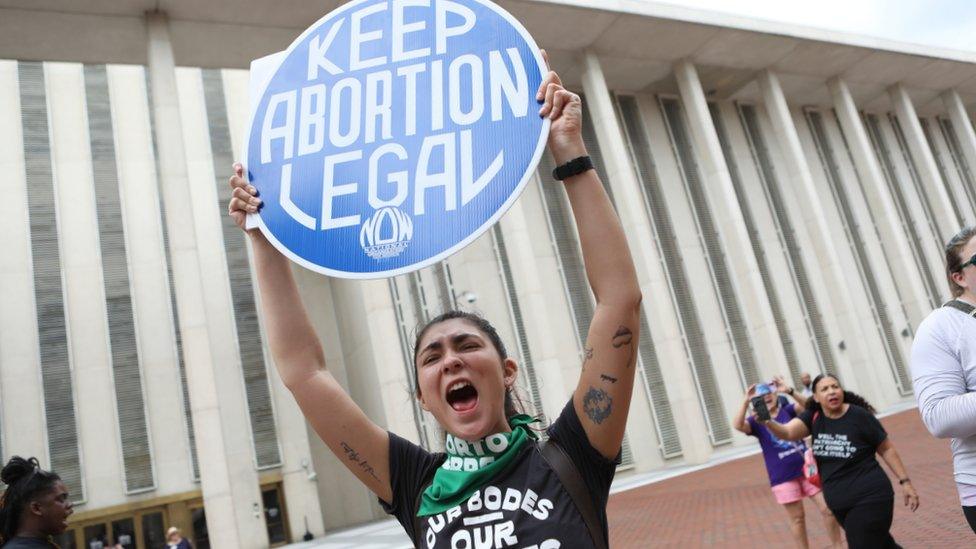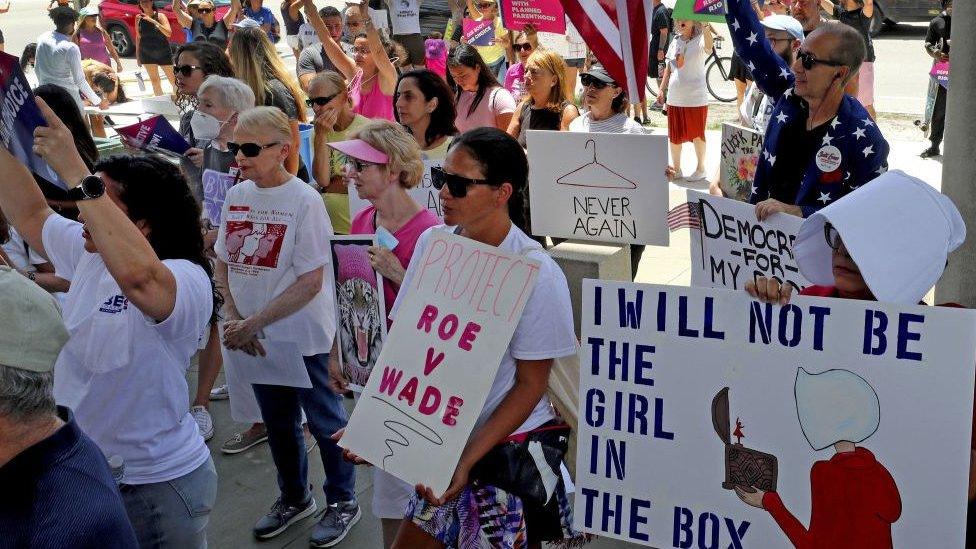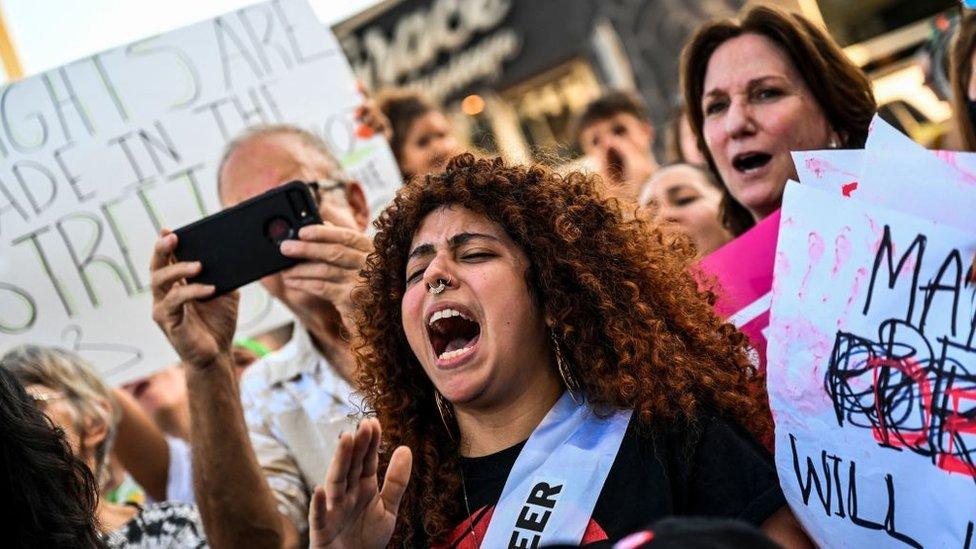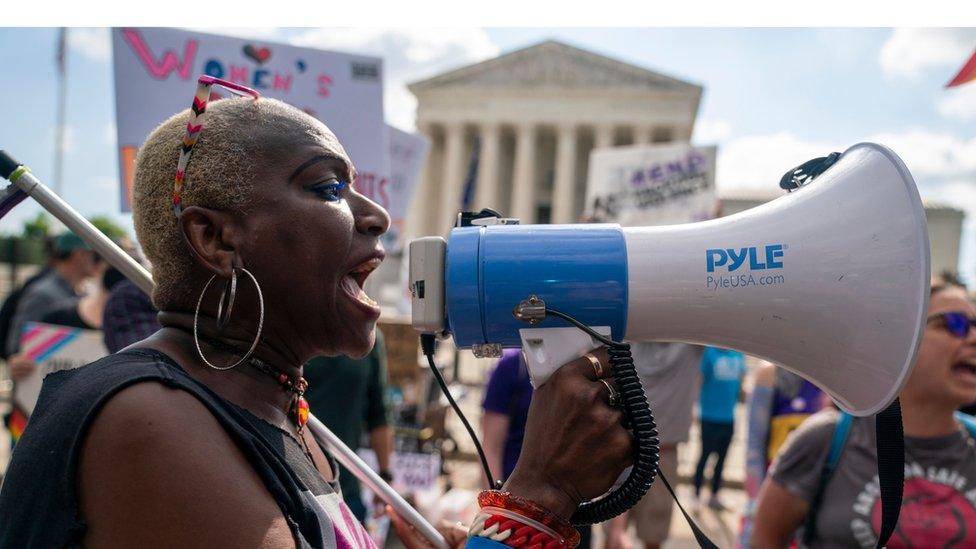Florida's top court ushers in six-week abortion ban, but voters will have their say
- Published

Florida's top court has paved the way for the state's six-week abortion ban to take effect, but is allowing voters to have their say on the issue.
The justices have upheld the state's 15-week ban on abortion, in a ruling that means a subsequently passed six-week ban can soon begin.
But the court will also let Floridians decide in November if abortion rights should be sealed in the state charter.
Most Americans back legalised abortion, but most also favour restrictions.
The abortion ballot initiative could energise liberal voters in a presidential swing state that has been trending conservative in recent election cycles.
On Monday, Florida's Republican-appointed justices decided by 6-1 that the state's constitution - specifically its privacy protections - did not apply to abortion access.
The ruling upheld Florida's existing 15-week abortion ban, passed in 2022.
A year ago Florida's Republican Governor Ron DeSantis signed into law a six-week abortion ban, but that bill was written so as to be placed on hold until the 15-week ban had cleared legal challenges.
Following Monday's ruling, the six-week ban can take effect within 30 days. Many women do not realise they are pregnant at six weeks.
Planned Parenthood, which runs clinics that provide abortions, and the American Civil Liberties Union were among groups that filed the lawsuit challenging the ban.

An abortion rights protest in Fort Lauderdale in 2022
In a separate ruling on Monday, the Florida Supreme Court decided 4-3 that a proposed constitutional amendment that would protect access to abortion in the state could be included on ballots this November, when the US general election is held.
The ballot question will ask Floridians to vote 'yes' or 'no' to a statement that reads: "No law shall prohibit, penalize, delay or restrict abortion before viability or when necessary to protect the patient's health." Viability refers to when a foetus, or unborn child, might survive outside the uterus, which is usually around 24 weeks.
It adds that "this amendment does not change the Legislature's constitutional authority to require notification to a parent or guardian before a minor has an abortion".
The ballot question was opposed by Governor DeSantis and Florida's Attorney General Ashley Moody, also a Republican.
Ohio, Michigan and Kansas are among states that have passed ballot measures in favour of abortion rights since the US Supreme Court in 2022 overturned a longstanding nationwide right to abortion.
A constitutional amendment in Florida needs to be approved by 60% of voters - a higher threshold than in other states.
If it does pass, voters could effectively reverse both the 15-week and six-week bans on the procedure.
US President Joe Biden, a Democrat, reportedly believes Florida's abortion debate could offer a path to victory for him in that state this November.
In a memo shared with NBC News, his campaign said Florida is "winnable" for the president if he campaigns on the issue.
Mr Biden's Republican challenger, former US President Donald Trump, won Florida in 2016 and 2020.
- Published24 June 2022

- Published14 April 2023

- Published24 June 2023
